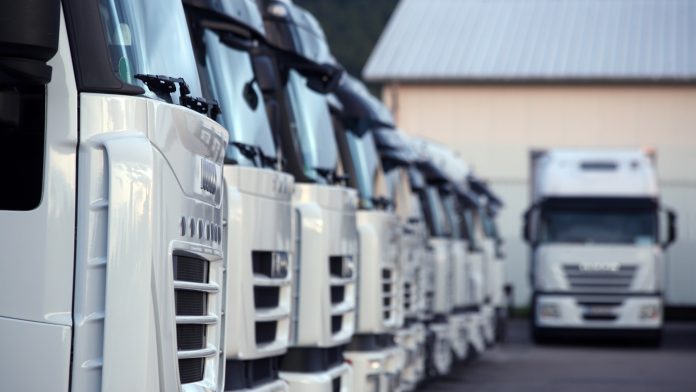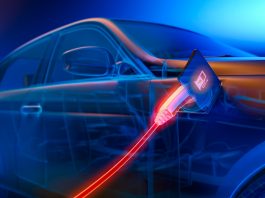The Department for Transport settle transportation plans to ensure all new heavy goods vehicles in the UK to be zero emission within the next two decades, unveiling new EV charge point concept.
The UK government is the first to reveal new policy to make all heavy goods vehicles (HGVs) zero-emission by 2040 at the COP26 climate summit in Glasgow. Alongside the UK’s phase out for petrol and diesel cars and vans ten years earlier in 2030, it reflects a world-leading assurance to stop sales of all polluting road vehicles in the next two decades.
Research from Bloomberg New Energy Finance, commissioned by the UK COP Presidency highlights the progress made in the passenger vehicle market. With 31% of the global passenger vehicle market now being covered by vehicle manufacturer commitments to stop sales of fossil-fuel-powered vehicles, up from a near-zero share of the market at the start of 2021. Global sales of zero emission vehicles (ZEVs) have grown dramatically since 2019 from 2.1 million to 5.3 million.
Zero-emission pledge
A group of industry leaders committed to working towards 100% zero emission new car and van sales also met at Transport Day at COP26. This included participation from 34 countries, six major vehicle manufacturers, 41 cities, states and regions jointly setting out their determination for all new car and van sales to be zero emission by 2040 globally and 2035 in leading markets. This group involved companies such as Sainsbury’s and countries including El Salvador and New Zealand who are today making new commitments to 100% HGV zero emission, following similar proposals made by the EU, Chile, Canada and a number of US states this year.
“From our roads to the skies, the transition to zero emission transport has reached a tipping point,” explained the UK transport Secretary, Grant Shapps explained. “We know that transport plays a key role saving the planet from warming above 1.5°C, which is why this is the COP that will kick start our ambition for zero emission aviation and why I’m proud to be uniting world leaders to tackle climate change – creating new opportunities for clean growth, green jobs and improved air quality right across the globe.”
Chief Executive of the British Vehicle Rental and Leasing Association (BVRLA), Gary Keaney, also showed his support to the HGV’s zero emission initiative by stating, “today’s announcement is a welcome update and will support the industry in its drive towards decarbonisation. BVRLA members are already leading the way in making positive changes and it’s vital that regulations acknowledge the different challenges experienced from one vehicle type to another. The BVRLA looks forward to working with the government on the delivery plan that will be essential in ensuring the UK road transport network can be decarbonised successfully.”
New EV charge point design
A new design for electric vehicle charge points was also unveiled by the UK government, being showcased in the UK Pavilion at COP26. Its design, created in collaboration by the Royal College of Art and PA Consulting, the concept prioritises ease of use and inclusivity, with customers, accessibility groups, local government and industry in mind.
Providing greater choice to industry and local government, the design will also raise awareness and cultivate excitement around electric vehicles by building one of the most affordable, convenient and reliable charging networks the UK has seen. This builds on the goal to make sure everyone benefits from the transition to HGV zero emission.
“To support the transition to EVs, it’s integral that we have the infrastructure to support it,” added Shapps. “My vision is for the UK to have one of the best EV infrastructure networks in the world, with excellent British design at its heart.”









